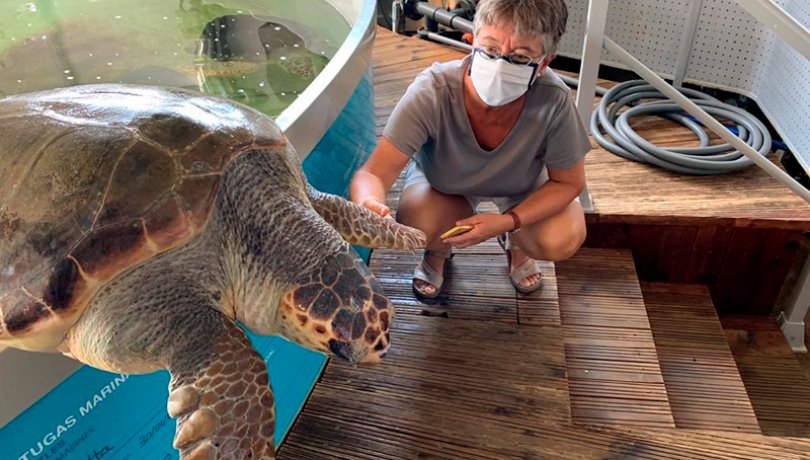They trigger cellular, hormonal and reproductive damage processes when in contact with cells. The effect of "invisible" plasticizers on marine species can alter their endocrine system and affect the long-term health of individuals.

A review of different scientific studies on the effect of plastic additives on humans and marine species, performed by researchers from the Institute of Environmental Diagnosis and Water Studies (IDAEA-CSIC) and the Institut de Ciències del Mar (ICM-CSIC) highlights that these compounds generate oxidative stress at the cellular level.
The study focuses on plastic additives or plasticizers: chemical compounds added during plastics synthesis that provide greater elasticity, strength or durability.
The main harmful effect of plasticizers on cells is oxidative stress. This is caused by the accumulation of free radicals, which accelerates aging and contributes to the development of diseases such as cancer, Parkinson's or Alzheimer's, among others.
In addition, according to IDAEA-CSIC researcher Cinta Porte, “other toxic effects have been described, like an increase in lipid accumulation in exposed cells (as caused by phthalates) or their ability to act as endocrine disruptors, and may interfere with reproduction.”
In some studies it has been observed that even some substitutes for the most toxic compounds, like bisphenol A, are not safer, which emphasize the need to improve the search for more convenient alternatives.
Most of these studies have been performed in vitro, by adding plastic additives to human or fish cells to observe their effect at cellular level. In the future, these techniques could also allow "to propose the use of alternative plastic additives, less toxic to humans and the environment," says Porte.
"The effect of plastics at the macroscopic level is already well known in marine species, but it is more unknown that invisible plasticizers can also alter the its endocrine system and cause oxidative stress, which in the long term affects the health of individuals,”says researcher Montserrat Solé of the ICM-CSIC.
The study is part of the Iberoamerican Program of Science and Technology for Development (CYTED) for the assessment of emerging pollutants on marine organisms and trophic networks. The use of in vitro techniques allows to quickly alert about damage on human health and ecosystems. "In particular, we aim to share simple low-cost techniques and knowledge to be able to evaluate exposure to plasticizers in, among others, sea turtle plasma," concludes Solé.
Communitacion from IDAEA & ICM, CSIC